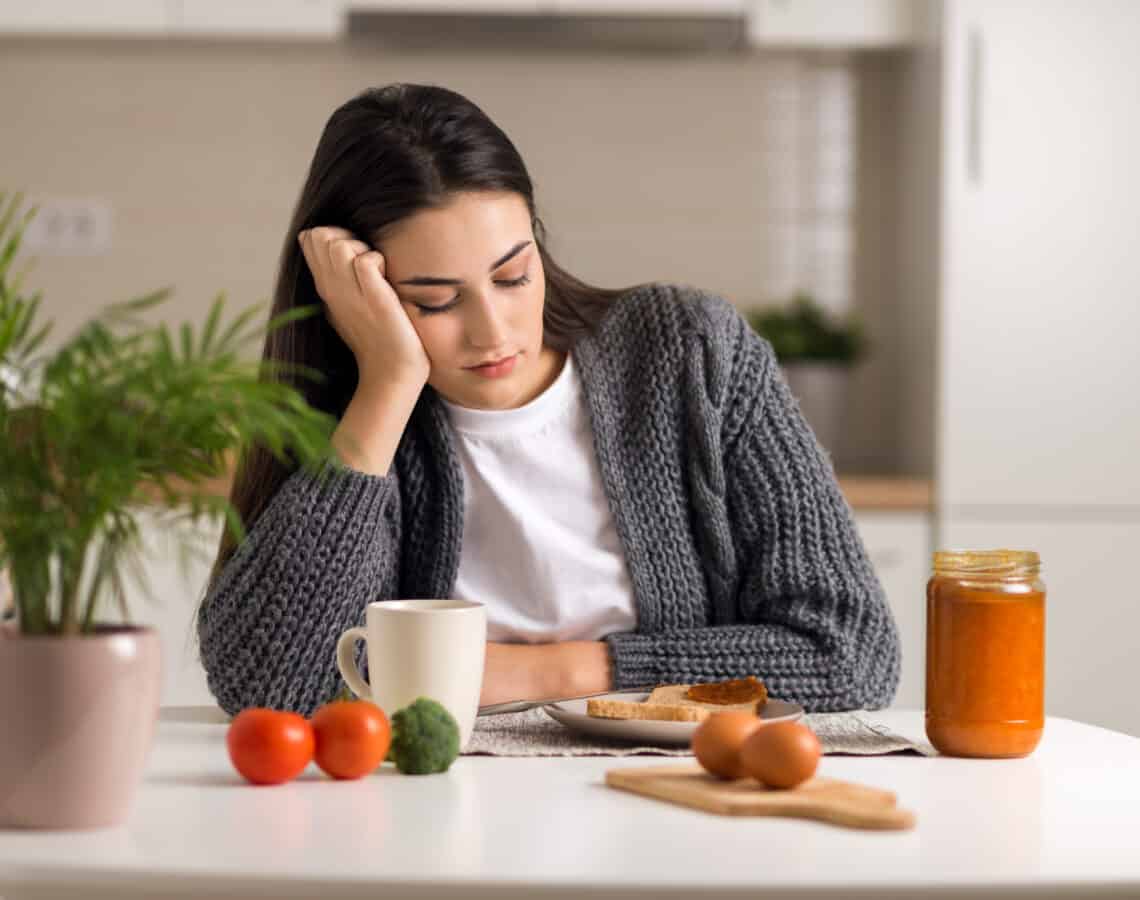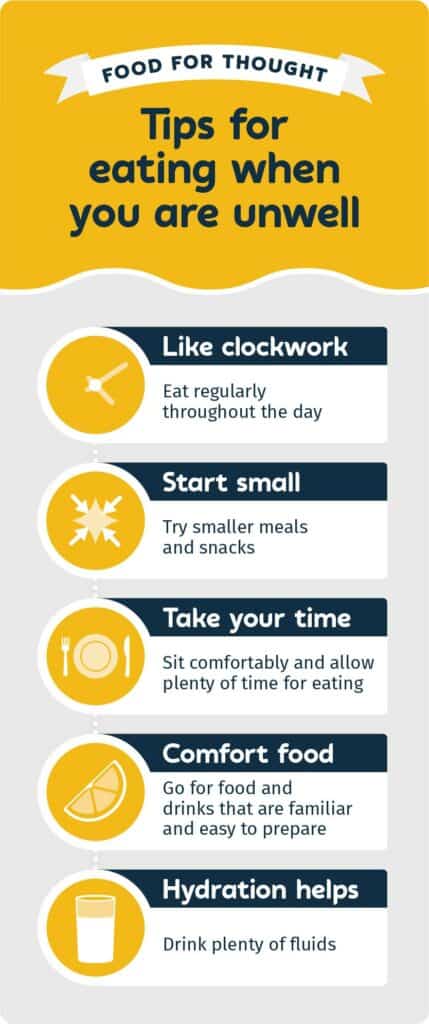No appetite? No problem. Try this game plan to stay nourished

When you have lost your appetite or sense of taste, enjoying your usual meals can be a real challenge – especially when you are unwell and already have enough on your plate.
While these symptoms of illnesses like COVID-19 mean food may not taste the same or your go-to dishes hold little appeal when you are sick, you still need to stay hydrated and get in enough nutritious foods to help your body recover.
Here is the lowdown on why you still need to eat and drink regularly while recovering, plus what to reach for in the fridge or pantry when you have no appetite.
Recipe for recovery
We get all the energy, protein, vitamins and minerals needed for a healthy immune system from food and drinks.
When you are sick, it is important that you eat high-quality healthy foods to help your immune system fight off the illness.
Not only will lack of food delay your recovery; it will put your body into a starvation state and make you lethargic and fatigued. On top of this, not getting enough water and other fluids will make you dehydrated, adding to fatigue. Dehydration of as little as 2% loss of your body weight can impair your physiological responses and performance. Because being unwell can lead to more fluid loss than usual (such as sweating from a fever or vomiting), replacing those fluids is a must.
The best way to ensure you are keeping hydrated is to drink enough water, aiming for 8-10 cups per day. This, combined with following a healthy balanced diet (including plenty of fruits and vegetables) will ensure you are getting all the fluid and nutrients you need.
Start small, keep it simple
Health and Wellbeing Queensland’s Principal Nutritionist, Mathew Dick, says the two things to remember are to stay hydrated and maximise your energy intake through the food and drinks you are able to consume.
“There’s no need to serve big portions or force yourself to cook your usual meals during this time. Keep it simple and go for small amounts of nutritious, high-energy food and drinks regularly throughout the day. If you are feeling up to it, gentle exercise can help to stimulate your appetite. This could be a walk around the garden, or some stretches in the living room.”
Try these ideas to bump your energy when you have no appetite:
- Eat nutritious foods such as yoghurt, cheese or bread/English muffins/crumpets with nourishing toppings like avocado, cottage/ricotta cheese, or nut butters.
- Drink milk-based drinks such as plain and flavoured milk or smoothies.
- Sip on water throughout the day. For variety, try homemade iced tea, 100% fruit juice, or flavoured soda water.
- When you are not eating much, small amounts of discretionary foods and drinks can be included to maximise energy intake. Reach for options like ice cream and custard as these contain protein, vitamins and minerals.
What to watch
You may experience weight loss depending on how long your poor appetite lasts. Weigh yourself regularly if you have scales to check if you are losing weight.
Rapid weight loss when you are not eating well will be mostly from fluid loss and can be a sign that you need to drink more fluids. However, see your doctor if weight loss continues or you are not able to regain weight when eating normally.
If you have had a fever, have been vomiting, or have not been able to eat your normal amount of food, you may like to consider replacing the electrolytes you have lost. Electrolytes are minerals we need for our body to function properly (such as sodium, potassium, magnesium, chloride). They support hydration, regulate nerve and muscle function and help your body produce energy when you are not able to consume your normal diet. Look for electrolyte containing drinks to support you while you are unwell. However, if this continues more than a couple of days, you need to speak with your GP or healthcare professional.
For latte lovers, keep in mind headaches can occur due to a withdrawal of caffeine if you have hit pause on your usual tea and coffee routine. You may want to try freshly brewed iced tea or coffee while recovering.
Remember, it is still important to eat and drink even if you have no appetite to help you on the road to recovery. Your appetite will return. In the meantime, learn why you should stock up on frozen and tinned veggies for a nutritious and delicious meal when you feel back up to cooking.



